Tosh Berman's Blog, page 218
August 22, 2014
August 22, 2014
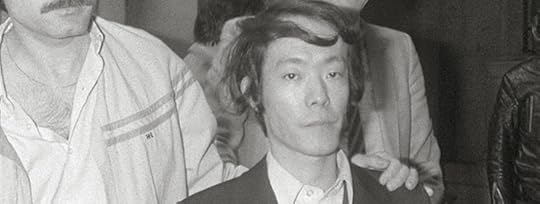
August 22, 2014
Without a doubt, the most impressive meeting I ever had was with the Japanese Cannibal Issei Sagawa. In 1981, he murdered and cannibalized a Dutch woman named Renée Hartevelt in Paris, while he was a student at the Sorbonne. He invited her over to his apartment for dinner, with plans to translate German poetry for a class. What he did was shot her in the neck, killing her, and then carried out his plan to eat her. After having sex with the corpse, and for over two days, Sagawa ate various parts of her body. He was discovered by the police when he attempted to dump the mutilated body in a remote lake. The police later that day found parts of the body in his refrigerator.
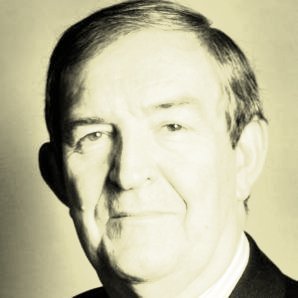
After two years being held in Paris without trial, Sagawa was deemed legally insane and unfit to stand trial by French judge Jean-Louis Bruguière, who himself is quite an interesting character. As an investigating magistrate, he became famous for battling anti-terrorism, specifically the far-lett group Action Directe. He eventually captured the notorious terrorist Carlos (the Jackal). In 2007, he left his occupation as a magistrate to work and support the Nicolas Sarkozy presidential election. Meanwhile, Sagawa was admitted to a mental institution in France, but eventually the French authorities took the decision to have him extradited to Japan. Once he got to Japan, he was sent to Matsuzawa Hospital, where he was examined, and all the psychologists found him to be sane. The Japanese authorities found it impossible to detain him because the French declined to release the court documents on the case. Technically his case was dropped in France. Therefore on August 12, 1986, he checked himself out of the mental institution.
Sagawa’s interest in killing and eating the girl was because she was healthy and beautiful. He, on the other hand, is ugly and slightly deformed. He was quoted as saying that he is a "weak, ugly, and inadequate little man." By eating her, he claimed that he wanted to “absorb her energy.” Sagawa not only killed a girl, but also destroyed his family as well. He is from a wealthy and loving family, but due to his crime, the father and mother lost their wealth and standing in the Japanese community as well as ruining any hope or chance for his brother to obtain marriage. As for Sagawa, as a writer, he couldn’t find a publisher for his writing and has been rejected from over 500 different places of employment. When his parents died in 2005, he was not permitted to attend to their funeral. He did repay their creditors over time, and eventually moved into public housing. It was during this time when I met Sagawa.
My wife and our friend were invited over to his apartment for lunch. It was his birthday that day, and I was asked to go along. I have heard of him of course, but I was totally repelled at the thought of meeting him. Yet, at the same time, I was deeply intrigued with his narrative. Once Sagawa was released he became well-known as a person to interview, if one wants to know the inside brain of a psychotic killer. He could articulate his own crime as well, because he has full knowledge of what he did, and doesn’t blame society, parents, family for his crime. It is all due to his sexual fantasy as well as his self-hatred for himself due to his unhealthy body. He became such a celebrity in Tokyo, that he actually ended up as a food critic for Spa Magazine. Nothing can last occupation wise for him, and the only thing he does have, is his skill as a writer. He wrote two books on his crime. One volume is about the murder itself, and the second book, which I think I would find more interesting, is what happened afterwards. With great temptation, I agreed to go with my wife and friend to his house.
It took awhile to get to his two bedroom apartment in the Tokyo area. Through out the train trip, I was very nervous about meeting him, and even more so, because lunch was going to be served. Once I got there, the first thing I notice is that he had a “welcome” mat by the front door. I knocked, and he answered the door. My friend introduced me and my wife to him. We shook hands, and invited us in. After taking off our shoes, we were led to his front room, which was interesting. By his front table, I noticed a dog sleeping, because you can see it was breathing. It took me a minute or two to realize that this wasn’t a living dog, but a dog-sized doll that is always sleeping. That slightly un-nerved me. Once we took a place on his couch, he sat right by me. He was totally focused on me, because he wanted to speak English and he was very interested in the Obama campaign at the time. I thought to myself “I hope to God no one knows that he’s a Obama fan.”
There were about five or six people in the house, and it was a small birthday party for him. There was a discussion about food, and there was none in the house. It was agreed that everyone will go to the local market as well as the nearby KFC outlet and bring food back. I was told to stay in the house with Sagawa and keep him company. Once everyone left the house, and I heard the door shut behind them, I felt very uneasy with him. Sagawa is a very charming man, and he noticed my behavior, which I tried to hide, but obviously failing in doing so. He offered to give me a tour of his apartment. In his living room, he had a sizable collection of first edition copies of Yasunari Kawabata’s work. He told me that he went to the Soborne to hopefully translate his works into French. To this day, he has a passionate interest in Kawabata’s writings. Also he had a collection of 19th century French dolls, which were displayed all over the apartment. He then took me to his bedroom.
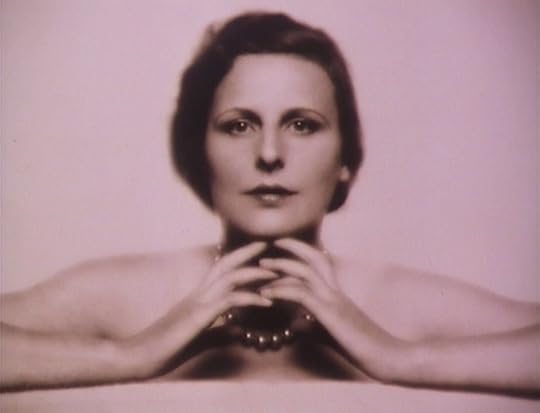
Sagawa had a lot of things in his bedroom. On the floor he had straight porn mags, and then when you look at his wall, he has images that are carefully curated in sections. First row was pictures of cats and dogs, but photographed with brightly colored bows around their necks. After that, a series of images of J-Pop female teen idols. They appear to have been carefully cut out of fan magazines. Then there is a section of the wall that is devoted to the German filmmaker Leni Riefenstahl. Basically prints of her underwater photographs. Also an autographed self-portrait of Leni, during her world war ll years, scribed to Sagawa. Then after that a series of photographed portraits of numerous German conductors. Sagawa has a great love for German orchestration and no surprise, is a huge fan of Wagner’s music. He's clearly not a fan of Debussy or a modernist like Stockhausen. Looking back now, I don’t think I have ever been to a more fascinating bedroom than Sagawa’s room. In one tiny area of his apartment, I caught the drift of his personality and passions.
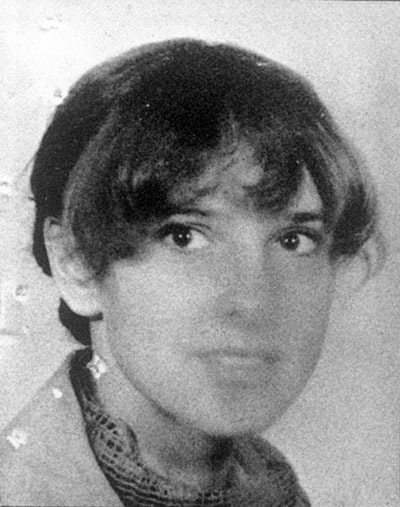
Before the other guests came back, he told me that if “the crime” or “incident” didn’t happen, he more likely would be teaching at an all-girl university. When he told me that, I just froze. Thirty seconds later he said to me that unfortunately each student would disappear one-by-one. At that point, I was just trying to show no emotion on my face. He gently hit me on the shoulder, and said he was only kidding. To release his stress, he tells me that his humor is quite dark at times. Also he did so to make me feel more comfortable in his presence. The truth is, Sagawa at least that afternoon, was totally charming. Clearly he was interested in me due that I’m a publisher, and my wife did read his two books, and she told me that they were incredible.

What’s interesting to me about Sagawa is not the crime he committed, but what happens after such a hideous act of violence. After one crosses that line, how does one live. For me it is not a guilt issue or how society sees that person, but more of a situation where all your life you are led to a specific act, and once you have done it, how can one go back to a “normal” life. I think Sagawa clearly thought that once he got arrested, the narration will end there. But alas, life is so full of twist and turns, and it is difficult to navigate one’s fate or direction in a world that is clearly insane. For myself, I usually turn to George Herriman’s great comic strip “Krazy Kat, ” which is about a non-gender cat, a puppy who is a cop, and a no-good mouse. As the landscape changes on a consistent basis in the comic strip, I imagine Sagawa is too traveling in a world of his making, but in a world or landscape that consistently changes, due to its mood. What should have ended for him, to be frank didn't. Clearly and without a doubt, the most fascinating man I have ever met in person is Issei Sagawa
Published on August 22, 2014 12:38
August 21, 2014
August 21, 2014
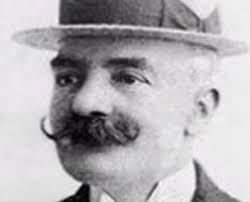
August 21, 2014
“To you that have grown rich from the sweat of my brow while keeping myself and my family in misery, I ask only that from those profits you find the funds to pay for my funeral. I salute you while I break my pen.” - Emilio Salgari.
After writing that note to his publisher, he committed seppuku, which is a form of Japanese ritual suicide by disembowelment. It’s a fascinating end of a writer who dedicated his life to writing “exotic” adventure stories. All of his books were written in Italian, and were then the basis for such genre as the “Italian Western,” which I guess means it’s all fake. He had commented throughout his life that he traveled widely, but the fact is Salgari rarely steps outside of his native country of Italy. What he should be noted for is using his imagination, and how that broke through various walls and boundaries, either set by borders or the wall that we all adhere to. It wasn’t a mere chance or a fluke in time that Che Guevara read 62 of his books, with such titles as “The Mystery of The Black Jungle” and “The Son of the Red Corsair” among others.
Salgari, for whatever reasons, lived from hand to mouth for most of his life. His father committed suicide. His wife was committed to a mental ward, and he had to support four young children as well as paying for his wife’s medical bills. His imagination didn’t save him, and sadly it didn’t pay well. Sometimes one is born under a black cloud, and there is nothing we can do to break that cloud’s grasp of everything underneath it.

Some years ago I read a really dark novel called “The Bad Seed,” (published in the year of my birth) which is about a little girl, who is truly evil, and it deals with a mother who realizes that her little cute daughter is a murderer. The only way she can address this situation is by giving the daughter a whole bottle of sleeping pills, while mother kills herself with a gun. Of course, the daughter survives, and it is implied that she will eventually kill more people. A bad seed, due that the mother’s real mom was a serial killer. So she had no doubt that somehow there is a “bad seed” and she transformed it to her daughter. I think one can gather that there is no justice in the world, because if you look at the emotional landscape objectively, one notice that shit happens all the time.

The “black cloud” that follows me around, is something that I just accept. I can put up with it, because instead of focusing on that one tree, I look at the forest for encouragement. If there is one school of thought that I belong to with all my heart and mind it is Aestheticism. I’m a firm believer in an art movement that emphasizes aesthetic values more than social-political themes for fine art, music and especially literature. Hell, even ‘real life’ has no source of inspiration or passion for me. I prefer the illusionary powers of art, by such artists as Aubrey Beardsley. He said: "I have one aim—the grotesque. If I am not grotesque, I am nothing." I find that inspirational, because how one reflects their will or vision on the world, is a great deal the role of the artist.
As a writer, I pretty much distance myself from the horrors of the world, or I use my imagination. More likely I take real life and make a détournement (hijack) and therefore I use it for my own needs and desire. Like Salgari who traveled the world within his own boundaries, such as his imagination, I have a tendency to avoid the evil that is born under that black cloud. What I do is squeeze the darkness out of the cloud till it becomes a white puff of liquid droplets. I do this because I can, and I desire to do so.
Published on August 21, 2014 12:13
August 20, 2014
Lun*na Menoh: A Ring Around The Collar (with 2-song flex-disk) Purchase now at D.A.P. website

Lun*na Menoh: A Ring Around The CollarPublished by TamTam Books
Introduction by Leslie Dick.For 14 years, Los Angeles–based artist, fashion designer and musician Lun*na Menoh has been exploring the many unexpected possibilities of the dirty shirt collar, producing paintings, sculptures, music, DVDs, performance art and fashion shows inspired by this lowly, ubiquitous aspect of clothing. The collar is a fashion boundary--the dividing line between what is hidden by clothing and the body that emerges from the cloth--and the stains commonly found there often confound sartorial panache, a fact which Menoh takes as the mischievous starting point for her work. Lun*na Menoh: A Ring Around the Collardocuments the paintings included in this series, as well as Menoh’s performance art and fashion shows. Included with this book is a flexi-disc with two songs by the artist’s band, Les Sewing Sisters, and an introduction by acclaimed author Leslie Dick.Now one can purchase this online at : http://www.artbook.com/9780985272418.html
Published on August 20, 2014 18:03
August 20, 2014

August 20, 2014
Sadness. Sadness all around me. No, no that is not quite true. It is me that is sad. I think the rest of the world is doing OK. For the past five years, I have been trying to write my memoir, but the truth is my life is totally lived in as an interior world. I don’t have any friends, and the only person I need to speak to on a regular basis is Mary my post office delivery girl. I mostly purchase things from the Internet, so I don’t go out that much. Due to the restrictions of writing words on a blank screen, I decided to go on YouTube and give little or brief accounts of my life over the years. Each episode is five-to-ten minutes long, and I just try to focus each program on a specific incident or time. But mostly it is very impressionistic view of the world. Dates and definite time are not that interesting to me, due that I have a hard time remembering them. I often see faces while I take my walk in the neighborhood, but I can’t recall where I have seen them or if I even know them. When I walk, I dream, and when I dream, I do my YouTube programming.
I don’t have that much money left, due to the fact that I don’t work for a living. I live to document myself, because I think it's important to be able to communicate with someone, and hopefully these people are watching my show. I often skip meals so I can pay for my internet service. I do go to the library time-to-time, but I find the internet connection at the library, at its very best, sort of works on a B- grade, and I need to make sure I get full coverage, because I don’t do anything else except remain online and organize my thoughts before I shoot myself on YouTube.
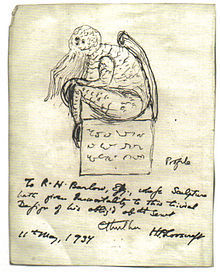
For awhile now, I have this feeling that I’m living with others, that can’t be seen or heard. Yet, I feel their presence in a profound manner. It could be a reflection off a mirror or even from my computer screen, where I see “something” behind me. I never know what it is, but I just feel its presence. Ever since I was a child I have experienced what is currently called “night terrors.” As I try to fall asleep, and right before I go under, I have this vision that startles me, and I wake up either about to scream, or I’m in a sweat. I sort of recall a face - but not a human’s face. It took me years, but I finally drew the image of what I see (enclosed here), and it is a figure that looks like a giant reptile body, but clearly has legs and arms. Also maybe a pair of wings as well, but not sure if they work or not. I never saw this figure fly or anything like that. I mostly remember seeing the face close up, because that is what startles me. I can at times feel the breath on my face. I think what it looks like is a roundish shaped head with tentacles either coming from its jawline or maybe even mouth. It took repeated times of this occurring before I could even remember details like that.
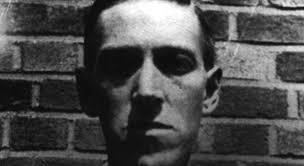
So I feel emotionally alone, but I know that this is not the case. Whatever I see in the nighttime, or what enters into my dreams -or to be more exact, the bridge between the awaken and the sleeping world, I know I just have to accept things as they are, and not what I want it to be. The sad thing is when I die, I will only have the YouTube footage, but one wonders if there will be a YouTube in the near future. Paper and pen have been preserved, but will the digital images of me be on this planet for long? And when I do pass into the night for good, will the horrible face I see be by consistent companion?
Published on August 20, 2014 09:36
August 19, 2014
"The Plum in Mr. Blum's Pudding" Poems by Tosh Berman (Published by Penny Ante Editions) out in November
 Cover image by Alex Chaves
Cover image by Alex ChavesPenny-Ante2 hours ago
Proud to be re-publishing a poetry collection by our dear friend — TamTam Books publisher and writer — Tosh Berman. Originally published in 1990 by “Cole Swift & Sons” (Japan) as a small hardcover edition of two hundred copies, this new edition of The Plum in Mr. Blum's Pudding acts to preserve this work and features an introduction by art critic and curator Kristine McKenna and an afterword by Ruth Bernstein.
Out in November
Ordering available now: http://bit.ly/1pYHuot — with Tosh Berman.
The Plum in Mr. Blum’s Pudding is Los Angeles native Tosh Berman’s first printed collection of poetry. In 1989, Berman left the United States behind, moving to Japan after learning his wife's (artist Lun*na Menoh) mother was ill in Kitakyushu. The Plum in Mr. Blum’s Pudding was penned while both rapt and lost by this transition. Gracefully toiling between the quirky and earnest, these poems describe the liminal space of the foreigner caught between the strange and the familiar. The result is surreal and unclassifiable, a book of love poems overshadowed by isolation and underscored with curiosity and lust. Originally published in 1990 by “Cole Swift & Sons” (Japan) as a small hardcover edition of two hundred copies, this new edition acts to preserve this work and features an introduction by art critic and curator Kristine McKenna and an afterword by Ruth Bernstein.

Review copies are available from Penny-Ante (info@penny-ante.net)
Published on August 19, 2014 18:01
August 19, 2014

August 19, 2014
I don’t drive motorized cars. What I do drive is a soapbox derby car, that was made by a child that lives on my block. It resembles the car driven by Fred Flintstone in the animated TV series “The Flintstones.” I live very close to Farewell Drive in Silverlake, and what I do is get in the car, and little William pushes my car down the hill. Only a few times have I hit a parked car to stop myself from going into the traffic on Glendale Boulevard. What I do is I pretend to write a note from myself, and I put it on the car’s window wiper. It usually reads "Sorry," signed little William. I don’t want to give little William a bad example. The fact that we do this when it is nighttime, gives me an extra thrill. Because there is always the danger that a ‘real’ car will come upon and hit me. I wouldn’t say that I am brave, but more suicidal as I get older. A sensible person would wear a helmet, but I refuse to wear one, because I actually like the feeling of the air hitting my face. I never timed myself, so I haven’t the foggiest idea how fast the soapbox derby car goes down the hill, but it feels magnificent.

To give myself a dashing look while driving the ‘car, ’ I usually find jewelry from the Coco Chanel collection. For years, I have consistently had an obsession about her life. What interested me is her relationship with the Nazis during the occupation. She was highly right wing, and basically a racist. Oddly enough she wasn’t that fond of the homosexual. She was quoted by her friend Paul Morand when she stated “"Homosexuals? … I have seen young women ruined by these awful queers: drugs, divorce, scandal. They will use any means to destroy a competitor and to wreak vengeance on a woman. The queers want to be women—, but they are lousy women. They are charming!"
That type of political philosophy goes well with her career at the time. I personally don’t follow those traits, but for some idiosyncratic reason I do think of her when I’m racing down the hill. A lot of times it is the skill or vision of the Creator, but often it is just plain ‘very’ dumb luck that one gets in a position to do what they want to do. Also the fact that she was a drug addict till the day she died has some appeal to me as well.

I never asked why, but it seems little William comes out to play only in the nighttime. I never met his parents, or even know if he a pair of adults that look over him. When I take my walks during the night, I can see him on his driveway working on his soapbox derby car. It looked pretty impressive, and I loved the fact that he added the number “12” to the side of his car. “12” is an interesting number off-hand. For instance a dozen means 12 of something as a sales unit and there is “12” zodiac signs in astrology, and there are 12 basic hues in the color wheel. Also there are 12 people who are designated to sit on a jury for felony trials. On top of that, I also collect 12” albums. I thought Little William was very clever using that number, and when I asked him why “12?” He said that he just turned “12” the other day.
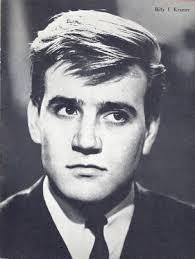
Over a short period of time I asked if he could make me a car that fits my size. He said yes, and within a week or so, he finished the project. I felt a tinge of embarrassment in my relationship with little William, because there were no other adults (besides yours truly) around us, and I didn’t want to be seen as exploiting the dear child. For his work, I gave him a vintage 45 rpm single by Billy J. Kramer and the Dakotas called “Little Children.” It was a song that haunted me as a child, because I have the impression that the singer, clearly an adult, was giving me sweets to keep a secret. A secret for a child is a scary and precious promise. So I think giving Little William this record was in a sense, my way of communicating with him that this car he built for me should be a secret among the two of us.
We meet up on an occasional basis, but as soon as I started to work on my book regarding Coco Chanel, I started to focus on not only my relations, but also how friendship or even “casual relationships” can cause such damage outside of that partnership. My little car represents freedom that I had, but now as it sits on my driveway, it is more of a museum piece.
Published on August 19, 2014 12:32
August 18, 2014
August 18, 2014

August 18, 2014
There are numerous ways of looking at one’s life, and it can be measured by the objects one owns, or their sexuality. For instance, I’m a pussy hound. Why? That is the million dollar question that I simply don’t have an answer for. I think the main reason is either a life where one sleeps through the day, and just function whatever is in front of them. For instance, you wake-up and make a cup of coffee without thinking of it. I say 90% of my life is on that zone. The sexual aspect of one’s life are mere moments when you see a woman, and it jabs one into another existence. An inner-life comes out of you and all of a sudden you’re in a world full of color, and it has absolutely no meaning. It’s a zone you’re in that has no rules and it is all about the sensuality of the moment. Each woman is different. There is no such being where one is exactly like the other. So if you’re having sex with one, it is totally different from the other. The truth is that no individual is like the other. And that becomes obvious when you’re fucking a series of women.

The great thing about a book like “Lolita” is that the intellect is there, but here the British professor of French literature, who has a guideline in life is totally disrupted by the presence of Charlotte’s flirtatious daughter. All logic is launched out the window, and there lies the problem for our hero of the novel. Or is the true hero Clare Quilty, the drunk and sometimes incoherent shadow figure that floats into the narrative like Satan looking for a lost soul. Nevertheless one has to disguise their desires nowadays. When I was a teenager, all my girlfriends were mostly going out with much older men, and to me, it was more common to know a beautiful girl in school, is clearly dating the questionable male that is waiting outside the campus with his car running.
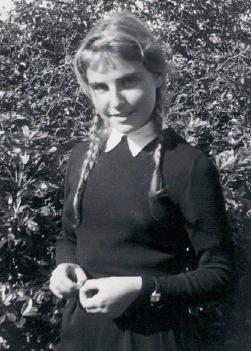
Sex is passion, but it is also about details. As they say, the devil resides in the details. I recently read Alain Robbe-Grillet’s last book, “A Sentimental Novel, ” which is about a professor having a S&M affair with his daughter. It struck me as being ‘sick, ’ but also I found it attractive because it is ‘sick. ' Usually the older man, who is obviously a pervert - is also a very educated and well-read person. To dwell into such depraved sexual practices, does one need to be an educated and smart person? Being a filmmaker and writer, one can easily go into the darkness of one’s sexuality and address those issues. The problem is the case that the reader or audience member may have trouble either in dealing with those issues, or at the very least, being very judgmental in such an obvious fashion. I have always been attached to a specific photograph of Robbe-Grillet’s wife Catherine. It looks like she is a little girl. Yet her expression is totally adult-like, and I feel I’m being pulled into a very precarious position. Roman Polanski is such a man who has dealt with a bad hand, where he suffered greatly through the loss of his wife and childhood (due to war). Yet his work comes alive with the sensual aspect of living. In fact to live is the ability to accept and further one’s adventure into the world of sex.
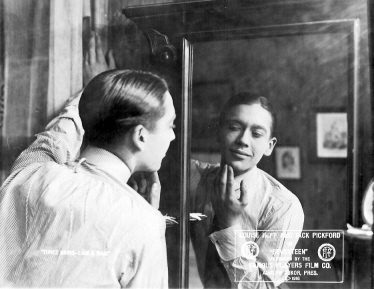
If I had one role-model in my life, it would be Jack Pickford. He was the younger brother of Mary, and it seemed his life was spent on drink, drugs and a passionate addiction to sex with women. His first wife was a wild number named Olive Thomas, who had a thirst for the carnal life just like her husband. Both were talented actors, but according to a source close to both of them “they were more interested in playing the roulette of life than in concentrating on their careers.” She died under mysterious circumstances, and he had two further marriages, that of course, ended up as a failure. I was taken by him, because I wanted to expose myself to all the harm he has done to himself. The loser is always more romantic than the winner, and it is usually those who lose, that we remember their presence more. The taboo is what keeps us in line, and to go against the grain is the thrill some look for. I have fallen for the passion of my times, but I now walk in various shopping centers and imagine what the girl tastes like, and in that small world, in my imagination, I find a certain amount of peace.
Published on August 18, 2014 12:51
August 17, 2014
August 17, 2014
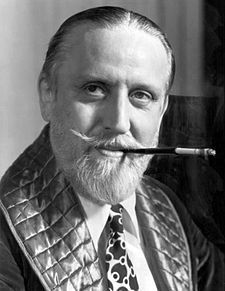
August 17, 2014
I have consistently been emotionally drawn to men like Monty Woolley, who was a close associate of Cole Porter’s, but was also a well-known actor - but for me, the very vision of the man is strictly through a series of photographs. If I was going to grow a beard, it would be like Monty’s facial hair. The thing is one has to pass through a lot of time and trouble to keep the beard trimmed and neat. The one thing that I don’t like about my body is the hair. Too much hair on my legs, arms, torso and worst of all, the back. Also I have a thick beard. Technically I probably need to shave twice a day, but that’s too much work for me. I tend to shave every two or three days, but to be perfectly honest, I don’t like how I look with a three-day beard. In fact, I don’t like how I look period.
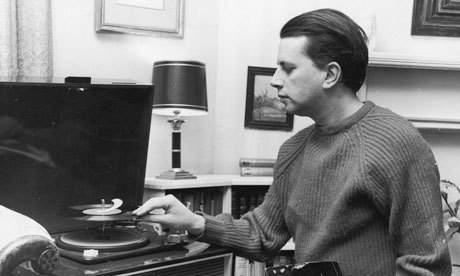
I’m approaching 60, which is old. People say 60 is the new 40, but that is a lie. The first thing I noticed is my neck. My neck looks old, but my face continues being youthful. Lately I have been using a lot of cream on my neck area, including my hairy shoulders, hoping to stop the aging that is taking place in that part of the body. As time marches on, I find myself losing my self in step, and it is hard for me to go back in line to march for a better world for me. On the other hand, Monty Woolley looks old, but I suspect that he was born looking old. I tried to find images of Woolley without a beard, and it was impossible. I assume that he was born with a full beard. Nevertheless, I do have at least three men that I look up to in a physical fashion sense, and besides Monty, there is the pop singer Kevin Rowland and the Jazz singer, writer, and Surrealist art collector, George Melly. I’m struck by them because they are not technically handsome (such as yours truly) but have a strong sense of style, that overcomes ugliness or any human defectively traits. So though I do have an aging neck as well as a hairy body (with the additional middle-aged fat as well) I figure I need to bring more personality to my appearance. The thing is all throughout my life, people always compared me to celebrities. In fact, I was often mistaken for certain public figures.

When I was 21, I went to see “Taxi Driver” at 20 times in a movie theater. I even adopted his look, not shaving my head mind you, but the checkered button-up shirt, Levis, and the beat-up jacket he wore through the film. It was my uniform that year, and I pretty much wore that on a regular basis. The thing is people began to mention that I look like Robert De Niro, which was complimentary at the time, but then people began to approach me like I was the actor. Not only that, but famous actors who actually worked or knew him. They would come towards me and say “HI Bobby.” They always had a weird look on their face when I told them that they are mistaken. Also I remember going to the Whiskey to see The Screamers, and someone behind me said “that’s Robert De Niro!” I looked around to see where De Niro was, and then realized that this guy was just talking about me. I had to leave the area because he was sort of creepy and his friends were about to approach me.
As I got older, I was compared on a regular daily basis to Martin Scorsese (I think due to the eyebrows) and the now late Robin Williams. Which I didn’t like to be compared to, due that he had a hairy body like mine. A lot of homeless and street people approached me on the public walkways, saying that I looked like those two guys. It was strange, because I couldn’t see the resemblance at all when I looked at myself in the mirror. Especially for Scorsese. However, on the other hand, so many people have commented on what they think is the resemblance between me and the great film director. It is like they are willing themselves into thinking I look like this figure.
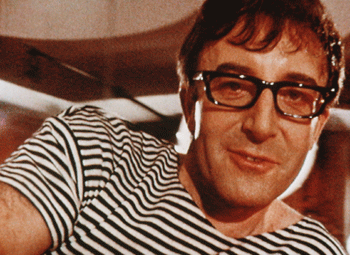
Lately it is now Peter Sellers. Here I can actually see the resemblance, I think due to the glasses I wear, as well as the facial shape of our mouths and eyes. Time-to-time, I have been called upon to send a photo of me for maybe an article or a need for a bio of some sort. Since I don’t like any of my own photos or portraits I usually now send a photograph of Peter Sellers. The funny thing, is that very rarely do I get anyone turning down the photo - even those who know me quite well. I never felt I was losing my identity, probably because I have spent my whole life thinking about being someone else. For instance, Kevin Rowland, Melly, or Wooley. No one ever mentions that I look like those gentlemen. Which, at the end of the day, brings me a sense of sadness.
Published on August 17, 2014 09:24
August 16, 2014
August 16, 2014
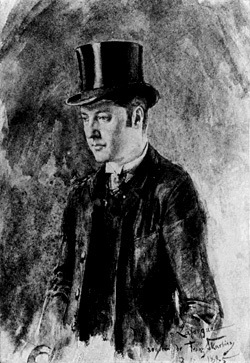
August 16, 2014
As a poet, I have two role models, not due to their writing, but mostly due to their lifestyle. French poet Jules Laforgue and Los Angeles poet Charles Bukowski. When I wrote my first book of poetry, that was published around 25 years ago, I pretty much just wanted to describe my interior as well as exterior life I had at that time and moment. The thing is, or the problem, if I can be frank, was that my exterior life was interfering with the peace and quiet of my interior life. At the time I had a strong love for Impressionist painting, and I somehow wanted to portray that element in my poetry. As my wife once pointed out to me, she always felt that Impressionist painting was due to poor eyesight from both the painter as well as the viewer. I don’t know if that is true or not, but in my case, I think my reading of impressionist poetry and painting was fuzzy at the very least. More likely due to the excessive drinking at the time. This is where the influence of Charles Bukowski kicks in.
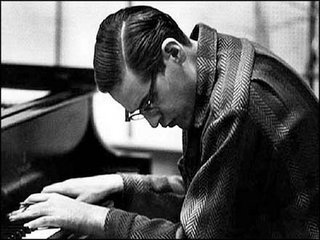
At the time I was writing my poetry, I always sat in front of my Underwood typewriter with the blank paper staring back at me, in fact, I could say that it was actually mocking me. Nevertheless I only had two albums at the time, and it was consistent soundtrack to my series of poems. Bill Evans’ “Sunday at the Village Vanguard” and Kevin Ayers’ “The Confessions of Dr. Dream and Other Stories.” Again, I love the music by these two artists, but what impressed me is again, their lifestyles. The fact that Evans was a heroin addict and looked so incredible, especially in the late 50s to early 60s, and Ayers…. A man who ran away from success whenever he can and when he heard a wine bottle being opened on some sunny beach. So with the combination of Charles, Jules, Kevin and Bill, I was in excellent company. But still, the page remained blank in front of me. It was at this time that I realized that I have to listen to my interior world, and if I must use the images and sounds of the exterior world, then do so.

A poet is required to pull things out of their imagination and life to produce their work. It is not all that far off from Felix the Cat, who had a bag of tricks, where one can make the bag into an airplane, a car, or a flying carpet. In fact, among those above, Felix is a major influence on my writing - again, due to the image of that specific kitty cat. When I am stuck on an idea or frustrated with a line in my poetry, I have a tendency to get up and walk around my typewriter. Usually with my hands behind my back, head down, deep in thought - which is a movement that Felix made famous in his cartoons. I felt that if I imitate his movement, it will somehow inspire my work. The writer Aldous Huxley was quoted regarding Felix that “what the cinema can do better than literature or the spoken drama is to be fantastic. ”

Right now I’m attempting to write my first poem in 25 years. I basically write on a round white table in my living room in Silverlake, and I have a portrait of Jules on my left side and Charles on the right side of the MacBook Pro. Felix is gone, but I always have an image of him in my mind, and sadly I lost the vinyl copy of Kevin and Bill’s album many years ago. So that too, needs to be from the memory. Which by the way, is a perfect tool to use for jumping into the imagination and see what can be dragged from the murky waters. Wish me luck.
Published on August 16, 2014 10:49
August 15, 2014
August 15, 2014
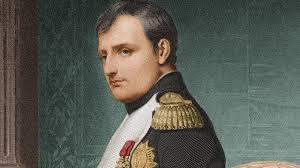
August 15, 2014
I love power. But it is as an artist that I love it. I love it as a musician loves his violin, to draw out its sounds and chords and harmonies. The illusions in life are plentiful. Because when you get down to it, a throne is only a bench covered with velvet. I rather trust my vision, because I find it that imagination rules the world. As an artist, I find one must change one’s tactics every ten years if one wishes to maintain one’s superiority. I’m surrounded by fear, ever since I was a little boy. I always felt that my world was going out-of-control, and I often felt like a tiny paper boat in a raging storm in the Pacific ocean. To control one’s fortunes I realized that the winner will be the one who controls that chaos, both his own and the enemies. In my social circle, I don’t fear the people who disagree with me, but those who disagree, and are too cowardly to let you know. Due to that, I have to take time to deliberate, but when the time for action has arrived, I must stop thinking and go in.

For many years I have been addicted to various types of alcohol, but I realized even that was a prop of sorts, to separate me from my thoughts and actions regarding the act of sex. I have very little interest in anything except for the sexual act between a man and a woman. Some years ago, I was a commercial photographer, and I specialize in color images. I just had the ‘touch’ to make the reds “redder” and the blues “deep.” I can reproduce a blue sky as if it was an endless ocean. One can smell the moisture off my photographs, but alas, I’m also focused on my female models. I don’t do fashion photography but more of architectural or product placement type of images, but I always add a female to the composition. Without a doubt, every female that I have used in my work, I wanted to (and please excuse my language) fuck. But even that I realize it is not really about the sex act, but more of an aesthetic than anything else. I like being aroused by the woman. Especially when I place her in such a manner in my photographs. I like the idea that I’m selling a product, and it does go on billboards, magazine ads, and so forth, but what I’m really focusing on is the woman. If you look on the surface, it reads the product, but my main interest is the woman holding or using the product.
Around this time, I lived my life in a precarious situation. Any money that I got from my work, I would spend it all as quickly as possible. Buying drinks at the most expensive bars was one of my favorite activities at the time. I never was good at picking up women in a bar because I feel that wasn’t an area of strength on my part. Instead I would relay on another male friend, who is trying to chat up a woman or two. Usually I frown at the thought of their techniques, but as one says “never interrupt your enemy when he is making a mistake.” Often they tried to use me, because I was a commercial photographer, and sort of hinted to the women that I perhaps can give them a job or do a photo shoot for them. Such small minds with big dicks!
They disgust me, because they don’t acknowledge the moment of appreciation. Their objectivity is to get the woman in bed, which for me is not the essential part of the seduction. What I like is to control the emotional landscape through my photographs. I never did anything obviously erotic, but eros is plenty in my commercial work. As a photographer, I’m a dealer in hope. So when I match the product with the appropriate face, or body, a connection is made between the product and the female. Whatever she was holding or drinking/eating becomes a sexual fixation for me. Many find this impossible, but that is only a word to be found in the dictionary of fools.

It has been noted that all my models look like Sylvie Vartan. To be honest, there is some truth to that, but I think it is mostly that I like strong blondes, because they have a sense of power that is good for the product on hand, but also it triggers my imagination in the sense that I feel like I’m making love to them, not only due to their beauty, but also to their strength. No wonder I was exhausted after a shoot! I now spend my time looking for work here and there, but alas, my sense of pleasure leads me to areas where currency isn’t used. So nowadays, I just live on my wit and sense of shame.
Published on August 15, 2014 10:10



